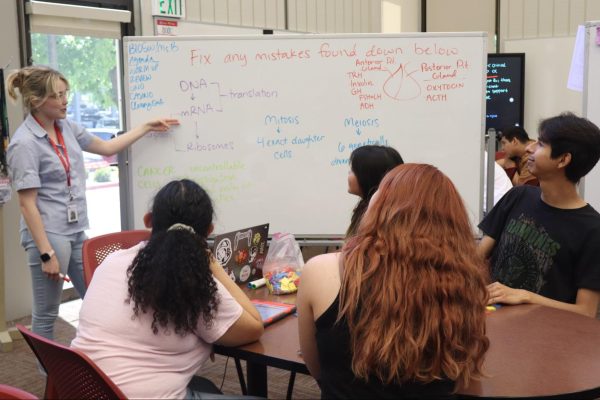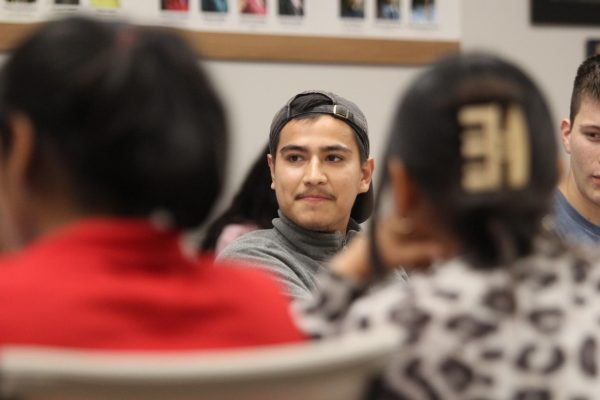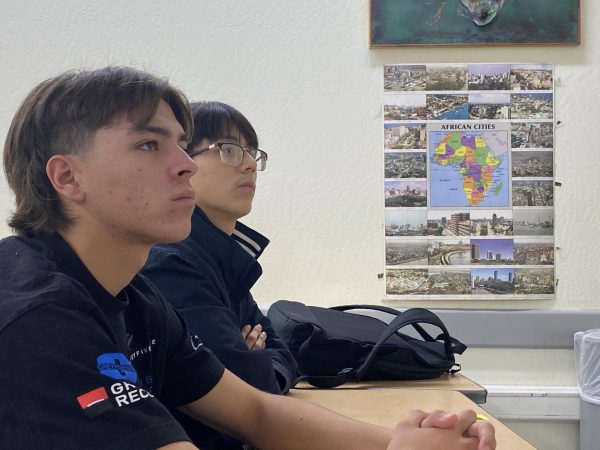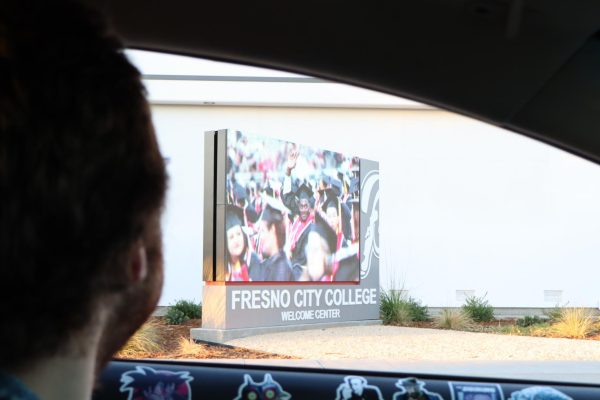AB705 Makes Way for Co-requisite Courses
This year marks the first year Fresno City College is offering corequisite courses for transfer-level English and math. So far this semester a lot of instructors have been receptive of the new bill. Bill 705 (AB705) passed Jan. 1, 2018 and became implemented this Fall.
English professor, and lead on AB705, Jackie Williams taught co-req courses at another campus. According to Williams classes at FCC filled up very quickly
“We didn’t offer a lot of sections [of corequisite courses before AB705] and one of the things that happened was classes became very in demand, those sections filled early, and we saw the same thing here,” said Williams.
The new co-req courses add an extra 50 minutes to each class meeting, leaving instructors more time to interact with students. Students are able to reflect upon new concepts for an extended period of time according to English professor Juan Guzman.
“I think that time is definitely impacting their success. They [students] are able to think about concepts and talk about it. They’re able to work it out with me and the tutor, they’re all in the same room,” said Guzman. A common struggle for is retaining knowledge from a lecture,”It makes sense to them when it’s lecture, but then they get home to do the assignment all of a sudden, they have forgotten everything that they thought they knew,” said Guzman.
Despite not having any co-req classes this semester, instructors did undergo training with handling co-req courses.
“The college has been really great about training us. They’re providing training for us, to not only think about the best use of the time, the extra 50 minutes, but also the best practices that we can use as instructors to kind of guarantee success in these classes,” said Guzman.
Instructors are really serious about giving students the best possible experience and trying their best to provide what they feel is best for their students according to Williams. Matt Woods, a math professor without co-req courses, went through the training and is more cognizant of the student perspective.
“I think more about the student experience in our classroom, kind at a micro level. Whereas we’re always thinking, okay, they struggle on this chapter or whatever kind of bigger picture stuff,” Woods said. “It’s made us think more about what does it look like from a student perspective when I’m up front lecturing for an hour straight, instead of giving them a 10 minutes, discuss it with your neighbor, kind of breaking it up.”
Woods said even if an instructor does not have a co-req they still get to hear opinions and ideas from their peers. “We have a community of practice, so we meet every week, together on Fridays. And we talk about what’s going well in the class, what’s working, what isn’t.”

Moises Buitrago is a second-year student at the Rampage. Buitrago is currently majoring in journalism and is looking to transfer in the fall. During his...








